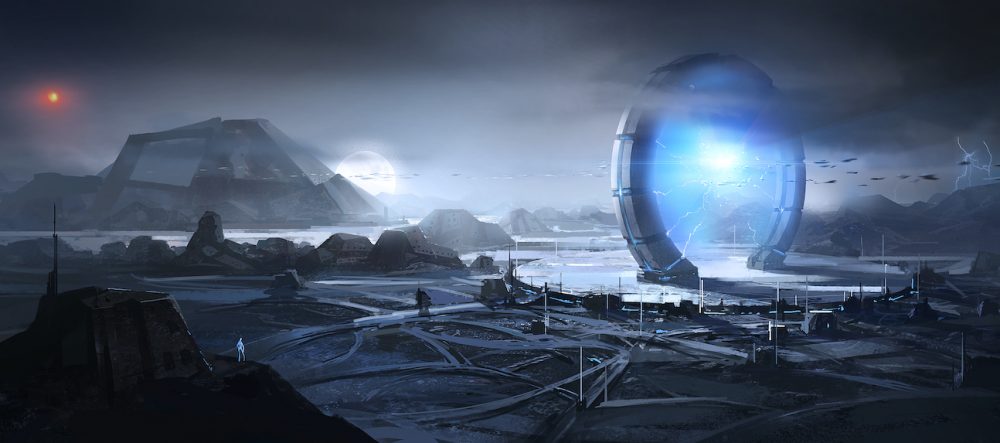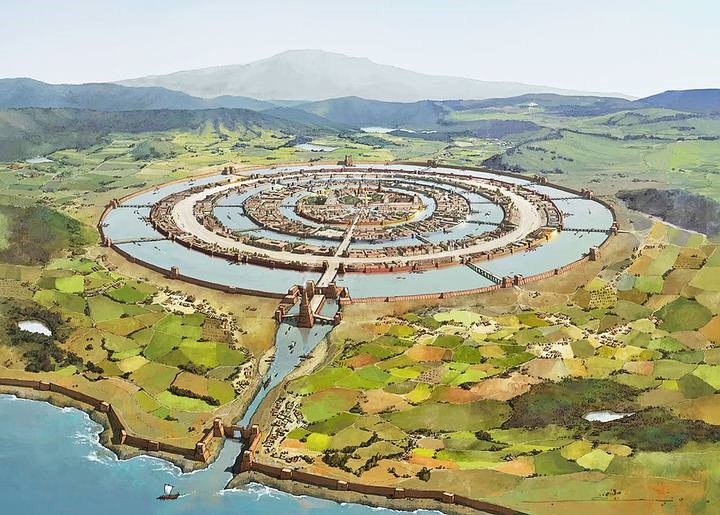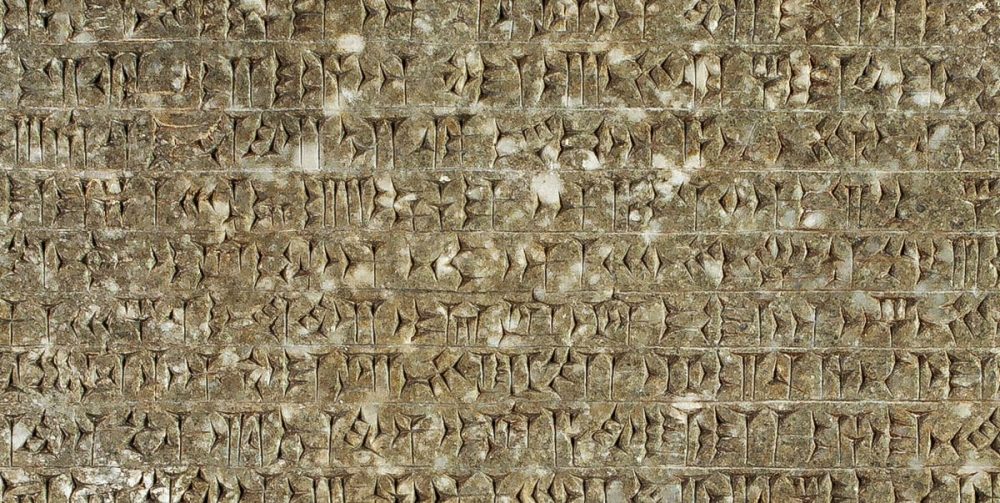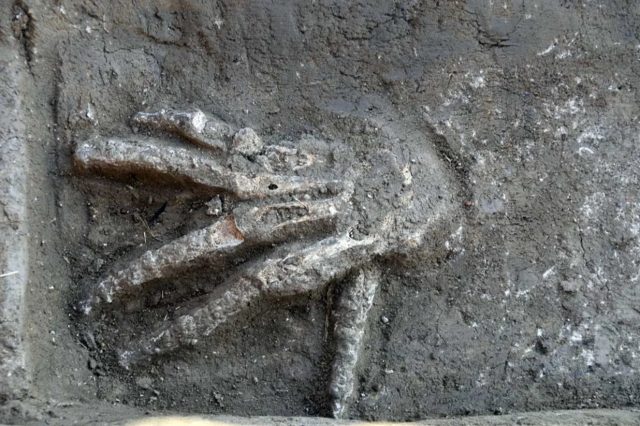I believe that history as we know it is incomplete, and that a major part of the missing pieces pertains to a long-lost, unidentified culture that existed long before great civilizations such as Egypt or Sumer came into existence.
Could a long-lost, Altnatis-like mother civilization exist on Earth tens of thousands of years ago, predating all other ancient civilizations? According to the mainstream narrative, we are all very used to it, the answer is a resounding no, and there’s nothing to discuss. However, I believe there is, and we should put greater effort into studying when great civilizations like Sumer or Egypt were not around, a time missing from history books.
Thousands of years ago, long before great civilizations such as the ancient Sumerians or Egyptians came to be, a powerful, advanced culture existed on Earth. According to mainstream scholars, who these mysterious people were, remains a mystery and a subject unworthy of scientific consideration.
I also think that evidence of their existence is scattered across the globe, and pieces concerning the existence of that lost “mother civilization,” a mater cultura, can be gathered and found by studying much later historical civilizations that came into existence.
Does a Long-Lost Atlantis-Like Mother Civilization ?
Most of the time, I bring up Atlantis in a conversation and start speaking about it thoughtfully. I tend to get weird looks and responses that go; “Well, Atlantis is just a myth,” or “If it did exist, where’s the evidence”? I have been fascinated by stories about Atlantis ever since I was a boy when I was first introduced to Plato’s theory and writings about a long-lost civilization that existed thousands—perhaps tens of thousands—of years ago. But the truth is that Atlantis can be traced back to the time before Plato’s popular writing about the mythical civilization in his works, Timaeus and Critias.
Plato and Atlantis
Plato describes the “Atlanteans” as a powerful culture that existed before more popular civilizations such as the ancient Egyptians. He even gives us an approximate location; beyond the pillars of Hercules. This location is not very specific and can refer to any land beyond Gibraltar’s strait, which is the land where Hercules’ pillars are found. But let’s pause there for a minute and look into where the Atlantis story actually originated from. By digging into history books, we find that it wasn’t Plato who first introduced the “concept” of an advanced civilization—Atlantis—that predates all other ancient cultures.
Tracing the origins of Atlantis
To trace Atlantis’s origin, we must look at a man called Solon, a respected statesperson who lived in Greece around 630 BC. Notable for his written work and poems, Solon was a man who loved traveling the known world of the time. His travels—inevitably—took him to Egypt, where he would be introduced to a very ancient civilization that existed long before that of ancient Egypt by the priests of the land of Pharaohs.
The land of golden sands
In his descriptions of his journey through the land of golden sands, Solon explained that he was introduced to a city-continent called Atlantis. This ancient empire is said to have existed long before Egypt’s civilization came into existence. Therefore, it is not Solon who “introduced” us to Atlantis but the man that would transfer the knowledge to Solon, a man called Sonchis of Sais—Sonchis of Saïs or the Saïte—who was a priest at the Egyptian city of Sais in the western Nile Delta.
Atlantis, over 9,000 years old?
Solon was told by the priest that, more than 9,000 years ago, an ancient civilization had been wiped from existence due to a series of cataclysmic natural disasters. The priest’s story—the source of the Atlantean story—is highly debated among mainstream experts. Many refuse to acknowledge his existence, mostly because Pluto does not mention the priest’s name in his story of Atlantis. However, even though Plato’s dialog fails to mention the Priest’s name, Plutarch identifies him in his work “the Life of Solon.” Below is a small piece of what Plutarch wrote, but you can read the entire piece by clicking here.
Sonchis the Saïte
“Near Nilus’ mouth, by fair Canopus’ shores, and spent some time in study with Psenophis of Heliopolis, and Sonchis the Saïte, the most learned of all the priests; from whom, as Plato says, getting knowledge of the Atlantic story, he put it into a poem, and proposed to bring it to the knowledge of the Greeks,” Plutarch wrote. Solon spent a lot of time traveling through Egypt, which allowed him to gather a wealth of information on the stories of that powerful ancient civilization mysteriously wiped out by natural disasters.
Atlantis: Mighty to its core
Sonchis told Solon that Atlantis was unlike anything that existed at the time on Earth. The civilization in its core was mighty, extremely advanced, possessing a piece of knowledge that was already gone by the tie of Solon and stuff of myth. Atlantis was built elaborately with great care and knowledge of sciences that are a mystery to us today. The city-continent is said to have had great temples and palaces adorned with precious metals and covered in vivid colors.
Protected by massive walls, the inside of the ancient Atlanteans’ capital was built on a series of circular islands, each of which protected that which was at the center. This story is believed to have been later picked up by Plato, who described through Critias’s voice how Solon met an old priest who possessed a long-gone knowledge in his travels through Egypt.
Pluto’s ancient Athenians
This empire, writes Pluto, was supposedly at war with the ancient Athenians. However, we can trace the history of Athens to no more than a few thousand years. Athens was inhabited from Neolithic times, probably as early as the fourth millennium BC. Atlantis, if it existed, was long gone by then. This means that if it did exist, Atlantis was not accurately described by Plato, who may have twisted Atlantis’s idea, adapting it to a specific timeline that allowed both the Athenians and Atlanteans to co-exist.
A mother civilization?
But despite the “twisted” idea that Plato wrote about, I don’t believe he was far away from the truth. I think that this civilization—which I refer to as the “mother civilization” likely existed and prospered before the last cataclysmic event that shook humankind during the last ice age, or around 13,000 years ago. I believe that long before the emergence of some of the most powerful civilizations on Earth, a mother civilization existed.
You can call it Atlantis. You can call it Lemuria or any other name, for that matter. The existence of this civilization could explain many of the mysteries that plague our understanding of ancient civilizations.
Was Atlantis this “mother” civilization?
This civilization’s existence—this mother civilization—could explain something that has fascinated me for years; why so many cultural and architectural similarities among ancient civilizations that never connected in ancient times. The existence of such a mother civilization could also help us understand why so many ancient pyramids are similar in design. The existence of a mother civilization predating all “contemporaneous” civilizations could, in my view, help us understand how ancient civilizations managed to quarry, transport, and erect incredible, history-changing monuments more than 12,000 years ago.
Survivors of a cataclysm?
I believe that during this time, around 12,000—15,000 years ago, knowledge of this ancient mother culture was still relatively fresh, and it was carried by “survivors” and migratory groups to every corner of the world. However, I also believe that eventually, and as millennia passed, knowledge of this civilization was erased from history, which is why anything related to their existence is today treated as pseudoscience and no more than a myth.
Mainstream view
While I must disagree with the mainstream view, I also believe that experts are looking directly at the remnants of this civilization by studying cultures that appeared recently, circa 5,000 years ago. However, humans sometimes fail to see that which is right in front of their eyes, which is why I believe it is unsurprising that mainstream scholars disagree with the idea of a civilization, and advanced civilization, predating all contemporaneous cultures.
Some examples
We must only look towards sites that have already rewritten history and continue to do so. My favorite examples are Göbekli Tepe and the Cerutti Mastodon site in the United States. Göbekli Tepe is considered the oldest megalithic temple—or astronomical laboratory—on Earth and was built at least 12,000 years ago, effectively predating all ancient civilizations on Earth. Its construction involves quarrying, transporting, and positioning megalithic stones weighing more than ten tons.
The incredible design of Göbekli Tepe
The design of Göbekli Tepe is otherworldly, incorporating geometrical principles long before these were even “invented.” The Cerutti Mastodon site offers compelling evidence that the Americas population’s history is entirely wrong and history books are outdated. The site, located in California, offers evidence of human presence on the continent more than 130,000 years ago., Who these people were, where they came from, and where they went remains one of the greatest archaeological mysteries of our time.
Is history incomplete?
Both Göbekli Tepe and the Cerutti Mastodon site—there are plenty more sites on earth—tell us that the mainstream narrative we have been following for decades is wrong and that humankind was far more developed thousands of years ago than what we are led to believe. I believe that history, as we know it, is incomplete. A major part of the missing pieces pertains to a long-lost, unidentified culture long before great civilizations such as Egypt or Sumer existed.





